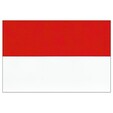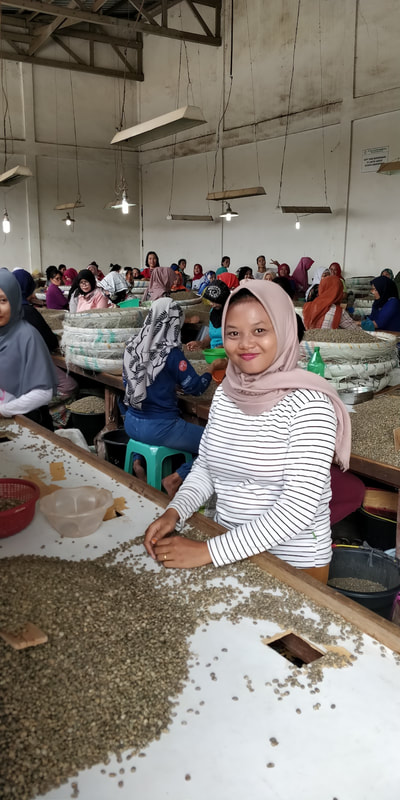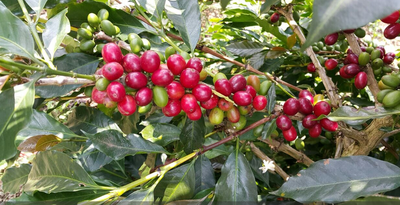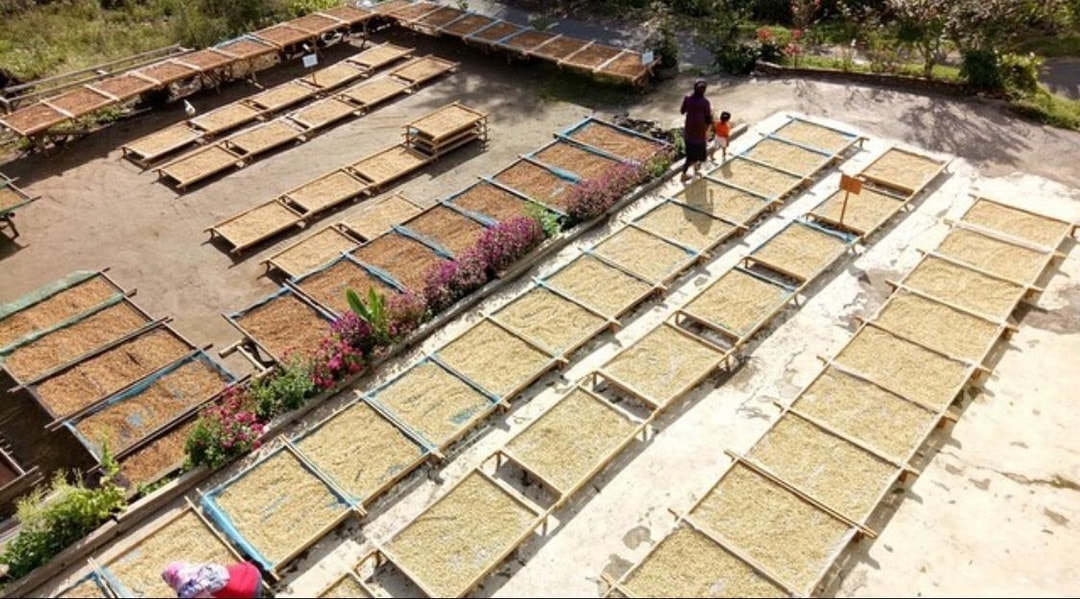Sumatra Gayo Mandheling GR1 TP COOP Permata Gayo
|
Quick Facts
|
Wet Hulling Process ( giling basah)
|
|
Region: Bener Meriah, province of Aceh
Process: Giling Basah - Semi Washed Altitude: 1200 – 1600 masl Botanical varieties: Bourbon, Timtim, Ateng Super, Catimor Harvest: December - March First Shipment: June Cupping Notes
Ref: 5327
|
|
Permata Gayo Cooperative was founded in 2006, when 50 farmers from 5 villages of the Bener Meriah district of the Aceh Province came together to discuss how to rebuild their abandoned coffee farms. They were successful in increasing their membership and achieved organic certification in 2007 and fair trade certification from FLO-Cert in 2009. They have brought the full process of coffee production from farmer to final export under one roof, thus improving quality, and guaranteeing more traceability from Aceh to roaster. Today, Permata Gayo Cooperative has 2053 members from 39 villages. As a result of their growth and improvements, the coop has been able to share more of the final price of coffee with their farmers.





